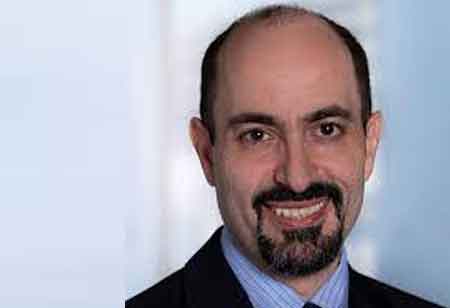Thank you for Subscribing to Healthcare Business Review Weekly Brief

Technological Trends Impacting Healthcare Industry
Healthcare Business Review
Ghalib Abbasi, PharmD, MS, MBA, is the system director of pharmacy informatics at Houston Methodist Health System in Houston, Texas. His areas of expertise include pharmacy informatics, sterile compounding regulations and technologies, interoperability, health care artificial intelligence, and 340B implementation and utilization. Ghalib received his Doctor of Pharmacy and MS in clinical/hospital pharmacy from the University of Iowa and his MBA from West Texas A&M University.
WHAT ARE SOME OF THE MAJOR CHALLENGES IMPACTING THE HEALTHCARE INDUSTRY LATELY?
There are two main challenges in today’s healthcare industry. First, over the past two years, many institutions around the nation have experienced significant demand for highly qualified healthcare personnel, including nurses and pharmacy technicians. Secondly, due to Covid, we all adopted a new lifestyle of working from home. However, now as everything is back to normal, organizations are struggling to accommodate the previous practices.
WHAT ARE SOME OF THE TRENDS IMPACTING THE HEALTHCARE INDUSTRY?
When it comes to trends, there are many new technologies that are impacting the healthcare industry. The first among them is artificial intelligence. In general, artificial intelligence progressed far more rapidly on the consumer side. But now, as a result of technological advancements, we are witnessing an increase in the number of applications of artificial intelligence, which is proving to be of great benefit to the healthcare industry. The other technology that is on the rise is voiceactivated tools. In the past, we have seen voice-activated technologies in healthcare in the form of transcribing voice commands into electronic health records or progress notes. However, due to advancements in technology, we have moved to newer frontiers. We’re looking at enabling patients to access healthcare providers by voice using certain hardware technologies. This will help patients just interact in the same way they interact at home. Moreover, the last trend we see is the expansion of telemedicine, which has been here for the past couple of decades. But I think it has not been expanding as fast as we saw it in the past couple of years within the pandemic.
There is room for augmented reality in addition to telemedicine, voice-activated technology, and artificial intelligence. This is crucial because we may currently use these to get a second opinion, perhaps from someone who lives thousands of miles away. Yet, the current fashion is to use augmented reality to carry out general medical, pharmaceutical, and nursing practices, reducing the amount of training time that healthcare professionals need to spend interacting with actual patient settings
WHAT ARE SOME OF THE LATEST PROJECTS THAT YOU HAVE BEEN WORKING ON?
The integration of infusion pumps with the electronic health record is one of the significant projects that we just completed. The project was started in 2019, but due to the arrival of the pandemic, we had to suspend it. This project revolves around patient safety initiatives.
For The Healthcare Professionals No Matter What Chaos Happens In The Healthcare Industry, Whether It’s Pandemic Or Staff Shortages, It’s Very Important To Stay Focused And Bring Up Any New Ideas To Overcome Such Chaos
It improves the smooth flow of data from the electronic health record to the infusion pump, eliminating the manual help that the program needs. This also makes it easier to prevent medication errors, which is crucial.
WHAT WOULD BE YOUR PIECE OF ADVICE FOR BUDDING PROFESSIONALS?
For healthcare professionals, no matter what chaos happens in the healthcare industry, whether it’s a pandemic or staff shortages, it’s very important to stay focused and bring up any new ideas to overcome such chaos. This will help in bringing more efficiency into the system, and more improvements can be introduced to the workflow.









